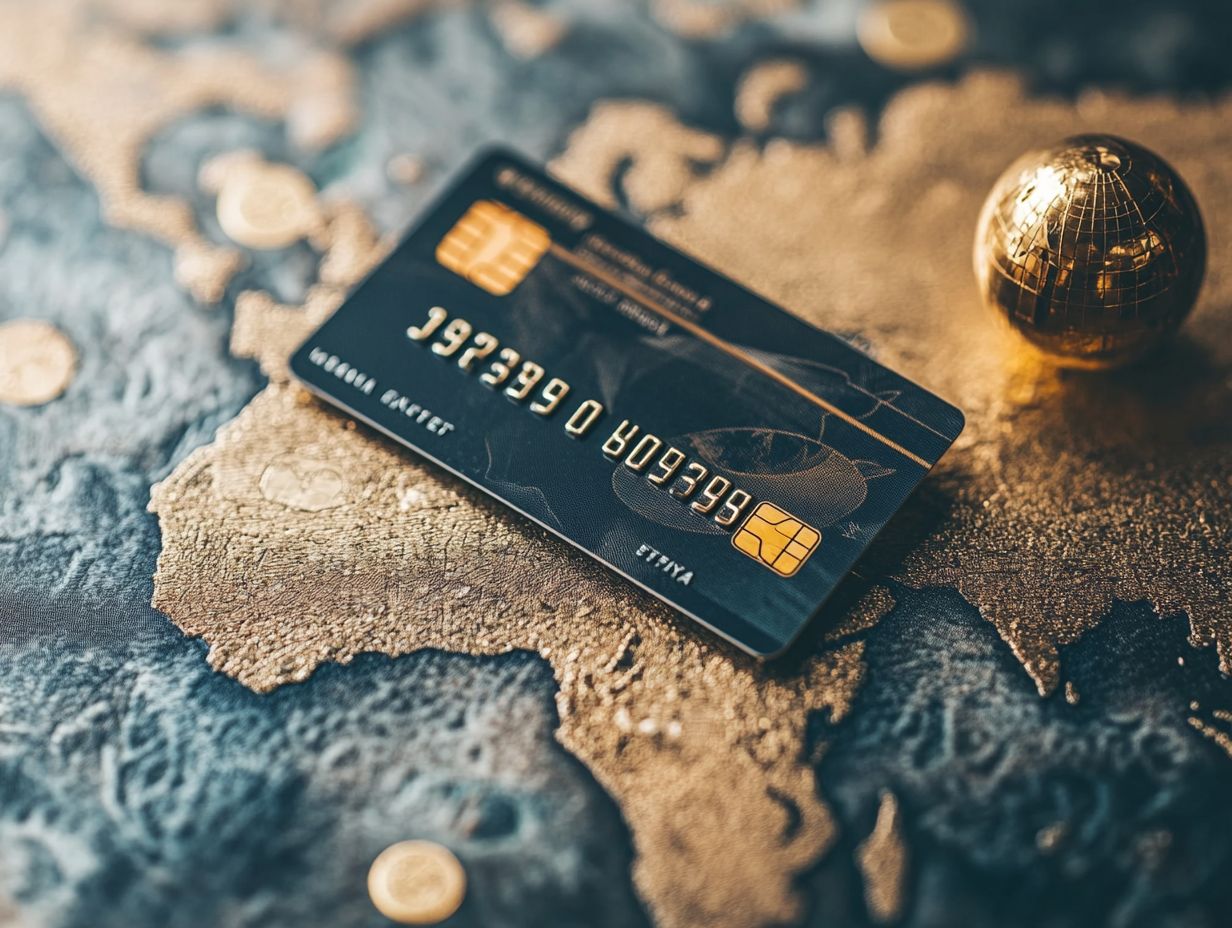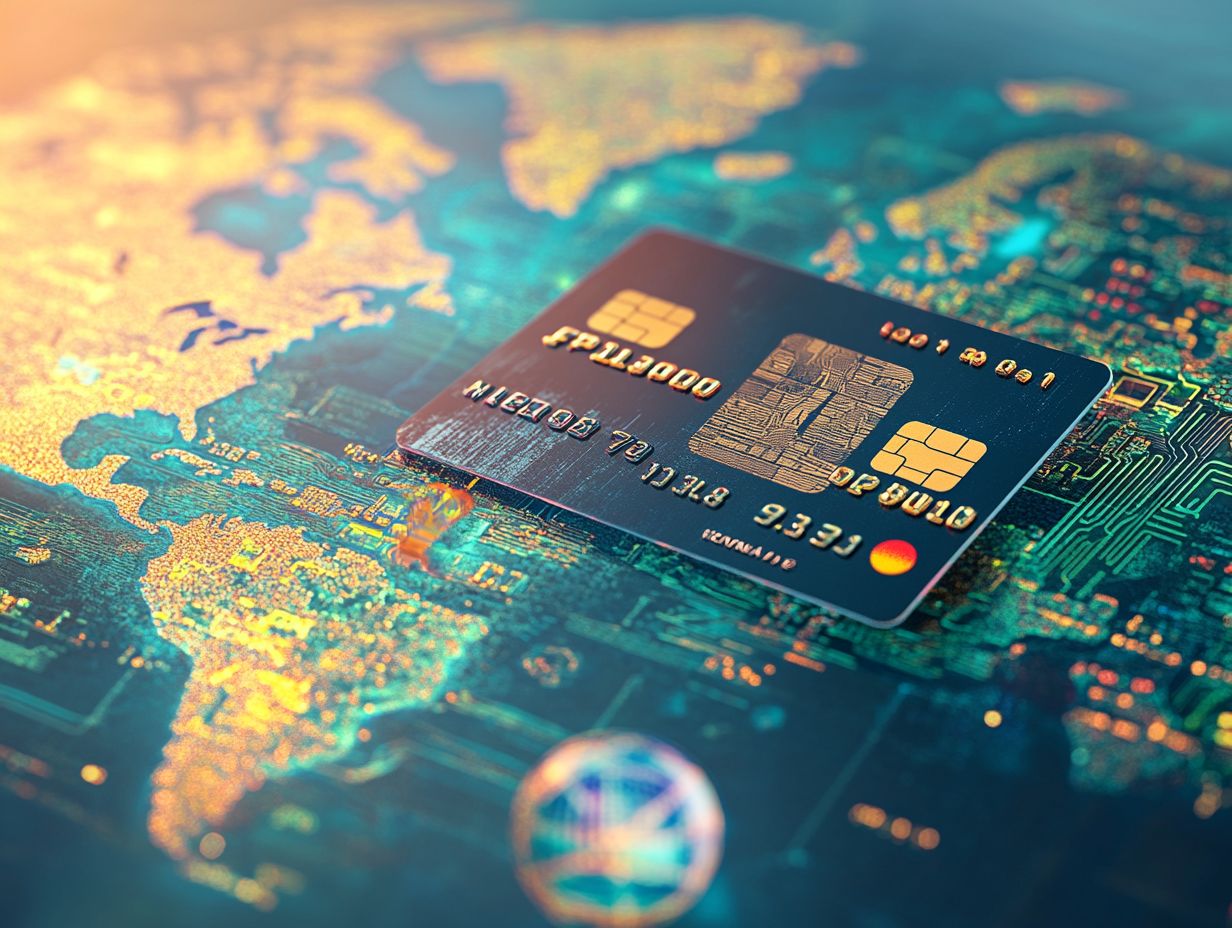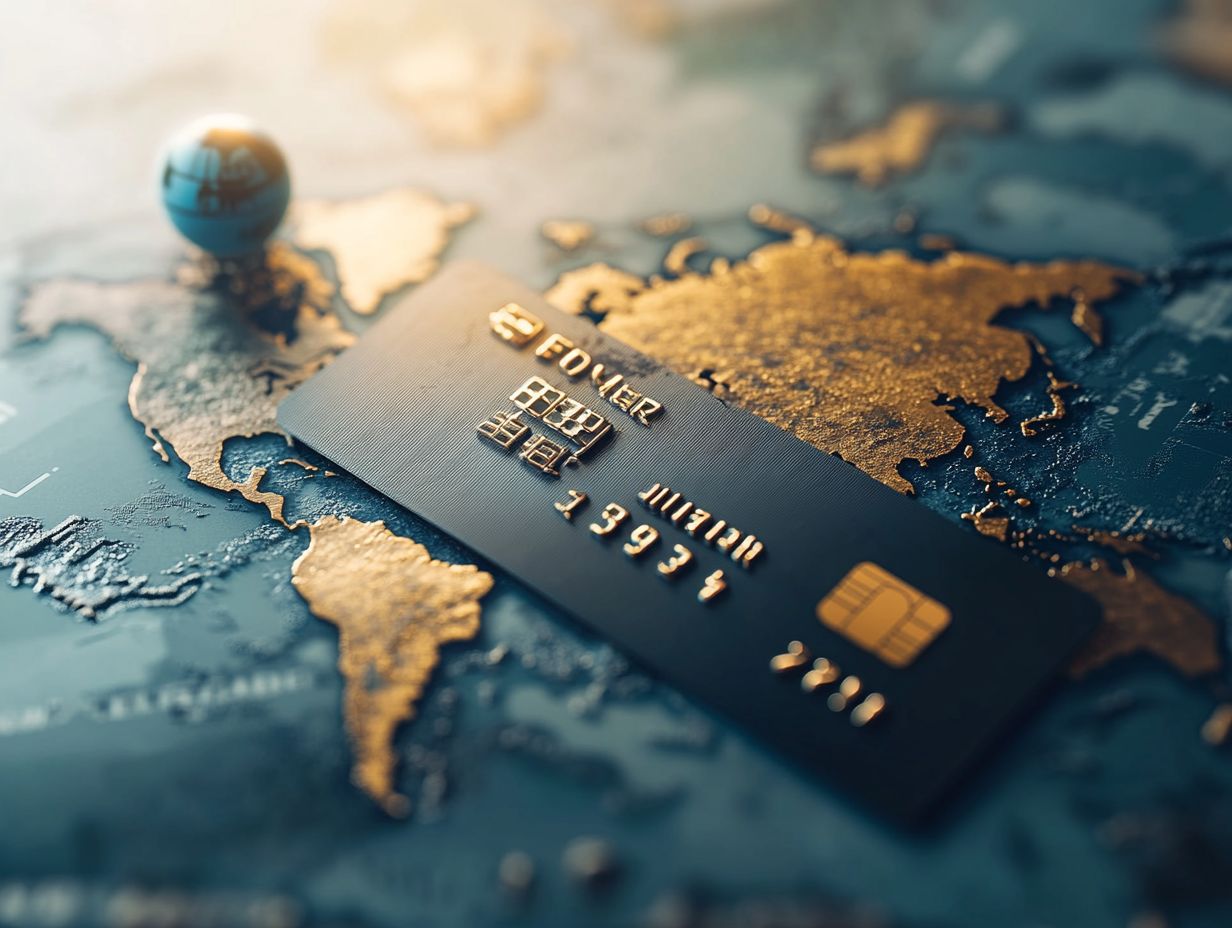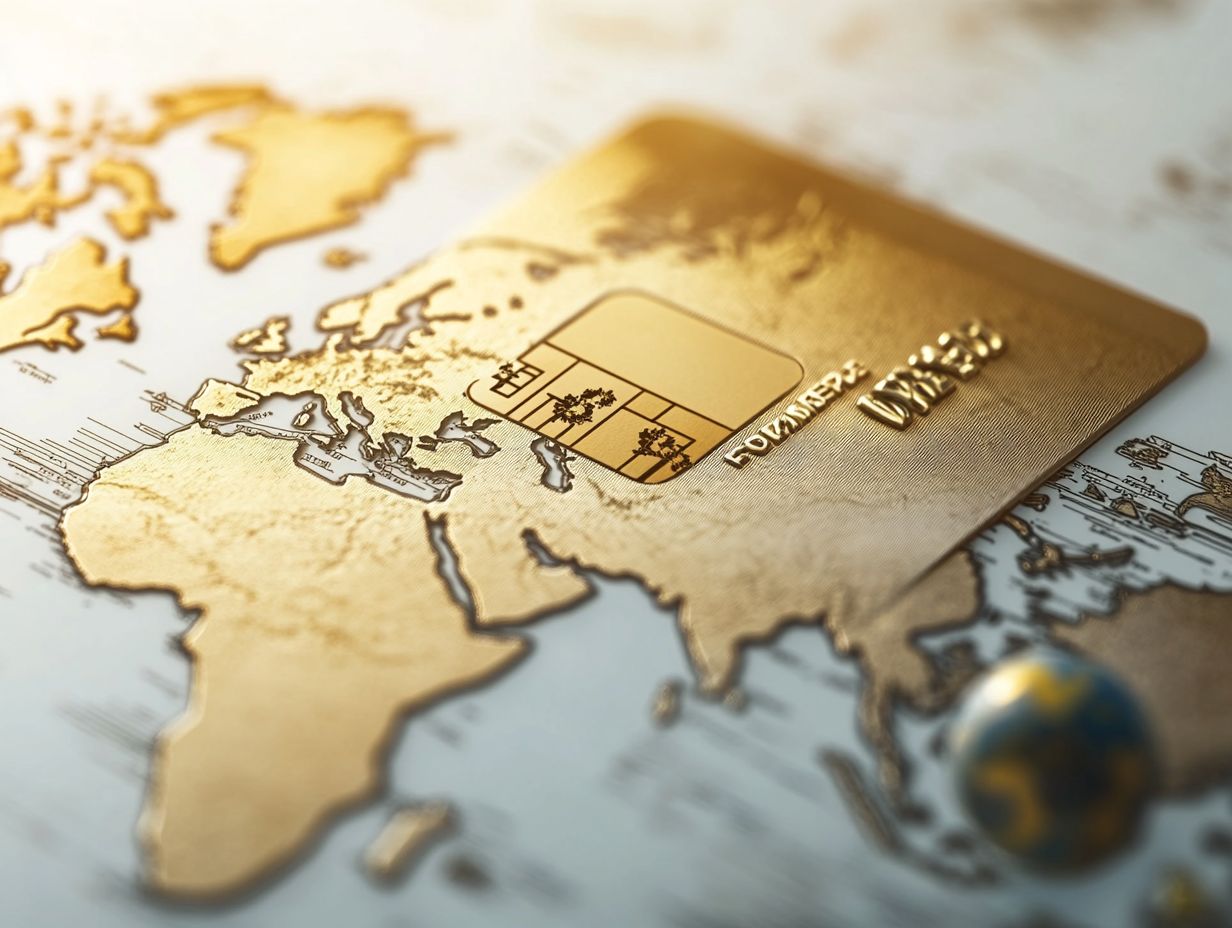What Are Foreign Transaction Fees?
When you travel abroad or make purchases in foreign currencies, you may come across foreign transaction fees those pesky extra charges that can accumulate faster than you might expect.
This article will illuminate what these fees entail and how they are calculated. It will also delve into why credit card companies enforce them. Here are some practical tips to help you navigate your finances while overseas, ensuring you maximize your money without incurring unnecessary costs.
Contents
Key Takeaways:

- Foreign transaction fees are additional charges applied to credit card purchases made in a foreign currency or with a foreign merchant.
- These fees are typically a percentage of the total transaction amount. They cover the costs and risks for credit card companies.
- To avoid foreign transaction fees, consider using a credit card with no foreign transaction fees. You can also opt for alternative payment methods like cash or travel cards.
Understanding Foreign Transaction Fees
Foreign transaction fees are those pesky additional charges that credit card issuers often impose on international purchases. By grasping the nuances of these fees, you can save yourself a considerable sum while exploring enchanting destinations like France.
These fees can fluctuate among various banks, such as Bank of America, Chase, and Capital One. They typically apply to transactions conducted in foreign currencies or during your travels abroad. It s crucial to thoroughly understand your credit card agreements to sidestep any unwelcome surprises.
How Foreign Transaction Fees Work
Foreign transaction fees usually hover between 1% and 3% of the transaction amount. They are levied by credit card issuers to account for currency conversion and processing costs linked to international transactions.
For savvy travelers like yourself, grasping the nuances of these fees is essential. Many banks, such as Chase and American Express, impose these fees on purchases made in foreign currencies or through dynamic currency conversion, which is when the transaction is converted at the point of sale instead of by your bank.
Reasons for Foreign Transaction Fees
Foreign transaction fees are imposed by credit card companies to reduce the inherent costs and risks of processing international transactions. Understanding this can help you navigate your financial choices more effectively.
Major credit card issuers, such as Visa, Mastercard, and Discover, encounter additional expenses when converting foreign currencies. They also manage fraud risks and ensure compliance with international regulations. All of these factors play a significant role in their decision to implement these fees.
Alternatives to Foreign Transaction Fees

Travelers seeking to sidestep foreign transaction fees have an array of enticing options. Discover the incredible benefits of no foreign transaction fee credit cards, which can yield substantial savings on international purchases and ATM withdrawals.
Cards like the Chase Sapphire Preferred, Capital One 360, and various travel credit cards from Bank of America and American Express are often designed with no foreign transaction fees. This means you can immerse yourself in your travels, free from the weight of extra charges.
Start planning your next trip today make your money go further!
No Foreign Transaction Fee Credit Cards
No foreign transaction fee credit cards are perfect for travelers like you. Enjoy seamless purchases abroad without extra charges.
Options like Chase Freedom Unlimited, Capital One cards, and various American Express and Discover offerings provide enticing benefits. These include rewards and cash back on foreign purchases.
Take the Chase Freedom Unlimited, for example. It waives foreign transaction fees and offers 1.5% cash back on every purchase, which can really add up during your overseas adventures.
The Capital One Venture Rewards card stands out with double miles on every dollar spent. You can redeem those miles for flights or hotel stays, turning your spending into future travel experiences.
Some American Express cards grant exclusive access to travel lounges. Discover cards may provide flexible payment options as well. Choose a card that aligns with your lifestyle and travel habits to maximize rewards.
Other Payment Options
Besides credit cards with no foreign transaction fees, explore various payment options to enhance your travel experience. Pre-loaded travel cards, debit cards from banks like Schwab Bank, and ATMs with favorable currency rates can be great alternatives.
These options often offer better exchange rates and lower service charges than traditional credit or debit cards. Prepaid travel cards, for instance, allow you to load a specific amount of foreign currency, locking in favorable rates before your trip.
When using ATMs, research which local banks offer the best withdrawal rates and lowest fees. This can lead to significant savings, allowing you to focus on enjoying your adventures.
Tips for Avoiding Foreign Transaction Fees
Avoiding foreign transaction fees requires careful planning. Understand your credit card agreements to know potential fees for international transactions.
Armed with knowledge about your credit card’s terms, you can make informed decisions that elevate your travel experience while keeping expenses in check.
Planning Ahead and Researching Fees

Planning ahead and researching fees can cut costs significantly. Understand the foreign transaction fees from various credit card issuers to find the most cost-effective options.
Examine the terms and conditions of different credit cards. This helps you identify fees and the benefits each card offers.
Comparing cards gives you insight into their transparency and overall value. A thorough review can reveal hidden costs, allowing you to avoid unexpected charges.
Utilizing Local Currency
Utilizing local currency during your international travels is a smart strategy that can significantly reduce foreign transaction fees and unfavorable currency conversion rates. This ultimately leads to noteworthy savings.
Whenever possible, withdraw cash in the local currency at ATMs. This often provides better rates than purchasing currency in advance or using card services laden with hefty transaction fees.
Many travelers find that carrying a small amount of cash makes transactions smoother in local markets or smaller establishments that may not accept cards.
To optimize your currency withdrawals, seek ATMs affiliated with your bank or major global networks like Visa or MasterCard. These options tend to offer lower fees and more favorable exchange rates.
Research ATM locations before your trip to save both time and money. Use bank apps or tools to monitor potential charges, ensuring you withdraw funds at locations that are both convenient and cost-effective.
Regularly Reviewing Your Credit Card Terms
Regularly reviewing your credit card terms is essential for understanding any changes in foreign transaction fees. Stay well-informed about your credit card agreement and any applicable fees from your card issuer that could affect your international purchases.
This knowledge helps you sidestep surprises while traveling and make informed decisions about your spending.
Credit card companies can change their policies at any moment, often without any advance notice. Make it a habit to check your agreements to navigate unexpected charges effectively.
Taking this proactive approach not only protects your budget but also gives you the power to select cards that are better suited to your needs, especially if you travel frequently.
Ultimately, staying informed allows you to maintain control over your finances, ensuring that each trip remains enjoyable without the burden of unforeseen expenses.
Frequently Asked Questions
What Are Foreign Transaction Fees?

Foreign transaction fees are charges made by your credit card company for purchases in a foreign currency or from a foreign merchant, so it’s important to understand what to know about foreign transaction fees.
How Much Are Foreign Transaction Fees?
The amount varies by credit card company, but they typically range from 1-3% of the purchase amount.
When Will I Be Charged Foreign Transaction Fees?
You will incur foreign transaction fees whenever you make a purchase in a foreign currency or from a foreign merchant, whether online or in person.
Do All Credit Cards Charge Foreign Transaction Fees?
No, not all credit cards charge these fees. Some, particularly those marketed toward travelers, do not.
Are Foreign Transaction Fees the Same as Currency Conversion Fees?
No, they are different. Foreign transaction fees are charged by your credit card company, while currency conversion fees are charged by the merchant’s bank.
How Can I Avoid Foreign Transaction Fees?
You can avoid these fees by using a credit card that does not charge them, or by using a debit card or cash for purchases in a foreign currency.






